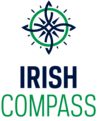Insurance

Insurance
Insurance is the equitable transfer of the risk of a loss, from one entity to another in exchange for payment. While most people think of insurance as a consumer product, businesses also need insurance for a variety of reasons, but mostly to protect their assets in the event of lawsuits, disasters, thefts, and so on.
Insurance can be divided into two primary types: individual or personal policies and commercial or business policies. They can also be divided further into four additional types of insurance:
- Health insurance: Covers expenses in the event of illness, hospitalization, etc. Individuals can purchase their own policies, and companies provide health insurance benefits for their employees.
- Life insurance: Pays benefits to a designated beneficiary when the policyholder dies. Like health insurance, life insurance is purchased by both individuals for personal use and by businesses as a benefit to their employees.
- Liability insurance: Protects individuals and businesses in the event of a law suit, and other specific insurances, such as executive insurance
- Property insurance: Insures properties such as homes, cars, boats, and business buildings and inventory.
Job Title Examples:
- Insurance Agent
- Claims Adjuster
- Claims Clerk
- Actuary
- Examiner
- Estimator
Skills Needed:
- Problem Solving
- Communication
- Mathematical Skills
- Organizational
Find Opportunities

Using IrishCompass, LinkedIn, and ND’s alumni association directory called myND is the best way to start on the networking front.
Job Databases:
• Handshake
• Great Insurance Jobs
• Insurance Jobs
• Ultimate Insurance Jobs
• Careers in Finance
Industry Timeline
The hiring timeline for the Insurance industry is mostly year round. A stronger need in the fall, employers are recruiting and interviewing for both full-time positions and internships. However, the spring is also an active time for opportunities.
Applying and Interviewing
Resumes
Your resume will often be the first impression for a potential employer. You want to make sure that your resume is concise, direct, and specific. Ensure that your resume is tailored for the position and for the industry. Highlighting relevant coursework can demonstrate your fit for a particular position. Review our guide on resumes for more information on how to construct one.
Cover Letters
A cover letter introduces you to a potential employer. Use the position description to make specific connections between your skills and experience and what the organization is looking for in a candidate. The cover letter should be concise and well-written—if a potential employer reads your cover letter and is intrigued, they will then read your resume. Your cover letter should not repeat your resume verbatim, but enhance it. Together the cover letter and resume can help land you an interview. Review our guide on cover letters for more information on how to construct one.
Interviewing
Most interviews will contain a mixture of resume based questions (questions about your past experience) and behavioral based questions (your ability to handle prospective situations at work. Most positions will begin with an interview that has a mix of these questions. Review our guide on common interview questions.
Preparation is extremely important for interviews. Research the company/organization, current and previous projects they’ve worked on, and even the people that you’re interviewing with. This will not only help provide talking points but will show your knowledge and genuine interest in the position. Utilize our resources on how to best prepare yourself to excel in your interview.
Online Resources
Explore:
Professional Associations:
- Risk and Insurance Management Society
- National Association of Insurance and Financial Advisors
- Center for Risk Management and Insurance Research
Campus Resources
Career Counselor:

Ray Vander Heyden
Assistant Director, Accounting, Actuarial Science, Corporate Finance, Insurance, Real Estate
Student Clubs:
Employer Examples:
- Aon
- Allstate
- Travellers
- Windhaven
Join Handshake:
Personalize your feed, explore your curiosities, and get updates that matter to you. Handshake is a dynamic system that works to match students with the most relevant resources and opportunities offered by our office including:
• Access to personalized job recommendations – This is based on major, career interests, and profile information such as skills and experiences. When students fill out their profile, they’ll be able to see jobs and internships that match their interests and skills.
• Ability to schedule one–on-one counseling appointments – Counseling appointments are able to be scheduled through Handshake and held virtually via Zoom.
• Ability to Interact with employers – Students can research contact information for local and national employers. Employers can also message students with opportunities and information.
• Connect with students across the country - Students can interact with their peers through messaging, get tips and advice, as well as network.
• Search for and apply to open positions - On Handshake, students can see jobs and internships posted specifically for them as well as employers actively recruiting from Notre Dame.